
Find Help
More Items From Ergsy search
-

What support is available for individuals diagnosed with bowel cancer?
Relevance: 100%
-

What is Bowel Cancer?
Relevance: 76%
-

Can bowel cancer be prevented?
Relevance: 71%
-

How common is bowel cancer?
Relevance: 70%
-

Why is there a surge in bowel cancer?
Relevance: 69%
-
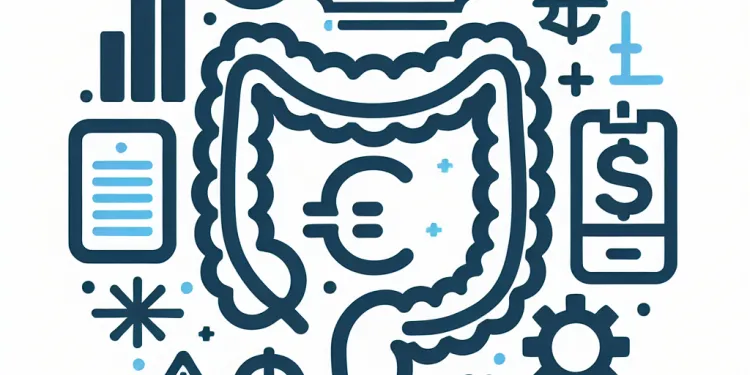
How is bowel cancer diagnosed?
Relevance: 68%
-

Bowel Cancer
Relevance: 67%
-
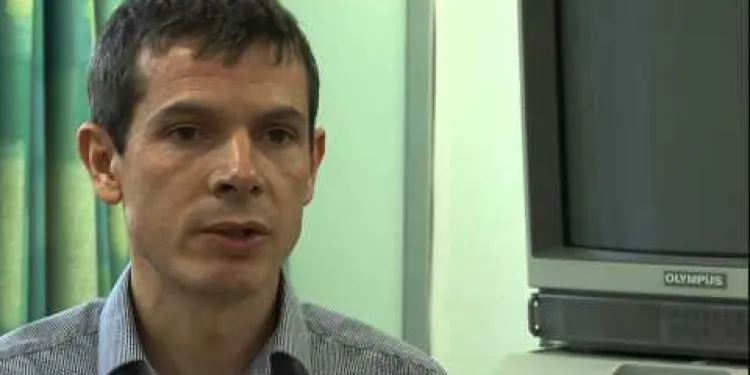
Bowel cancer - Symptoms and signs to look out for
Relevance: 67%
-

What are the risk factors for bowel cancer?
Relevance: 67%
-

What is the survival rate for bowel cancer?
Relevance: 67%
-
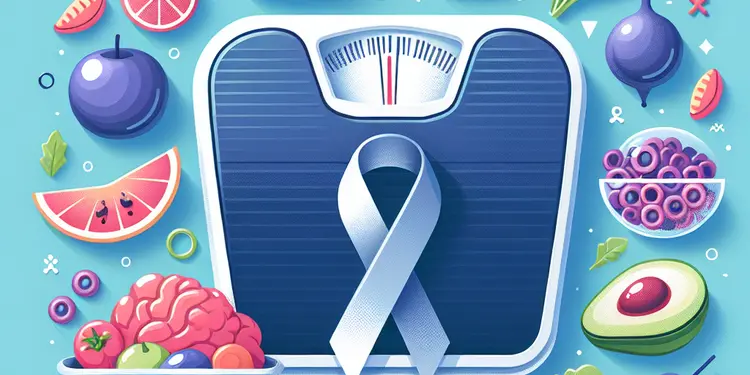
How does obesity affect bowel cancer rates?
Relevance: 67%
-

Is diet linked to the rise in bowel cancer?
Relevance: 66%
-

Are there specific benefits of exercise for bowel cancer survivors?
Relevance: 65%
-
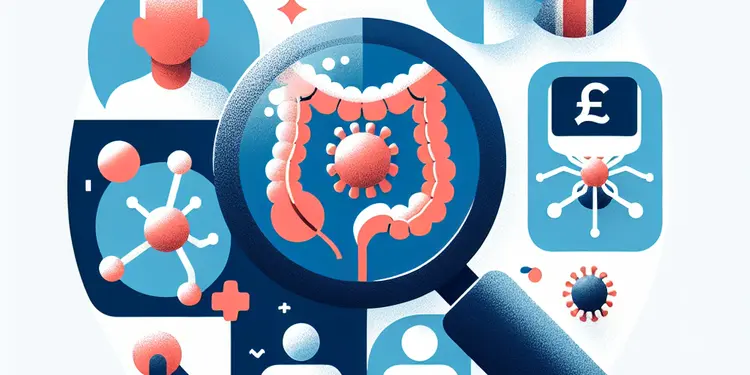
Are younger people being diagnosed with bowel cancer more frequently?
Relevance: 65%
-
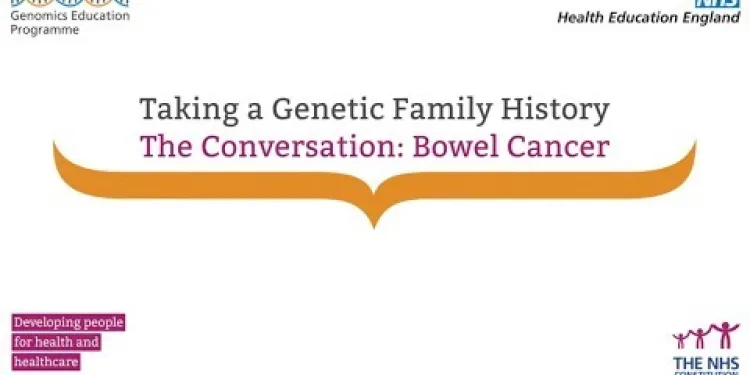
Taking a Genetic Family History - The Conversation (Bowel Cancer)
Relevance: 65%
-

Can bowel cancer spread to other parts of the body?
Relevance: 64%
-

How is the stage of bowel cancer determined?
Relevance: 64%
-
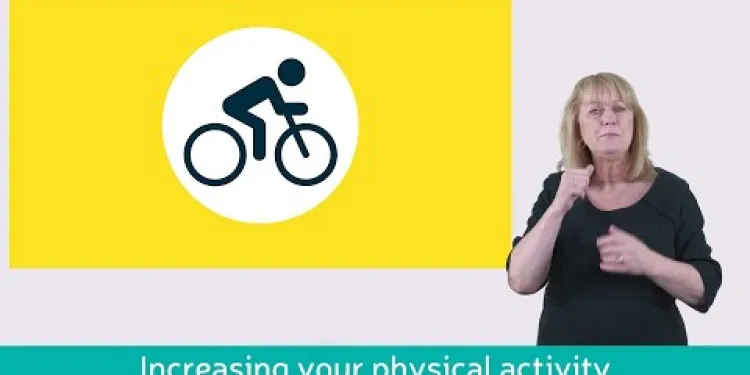
Learn about bowel cancer (British Sign Language version)
Relevance: 63%
-

What treatment options are available for bowel cancer?
Relevance: 63%
-

What are the side effects of bowel cancer treatment?
Relevance: 63%
-
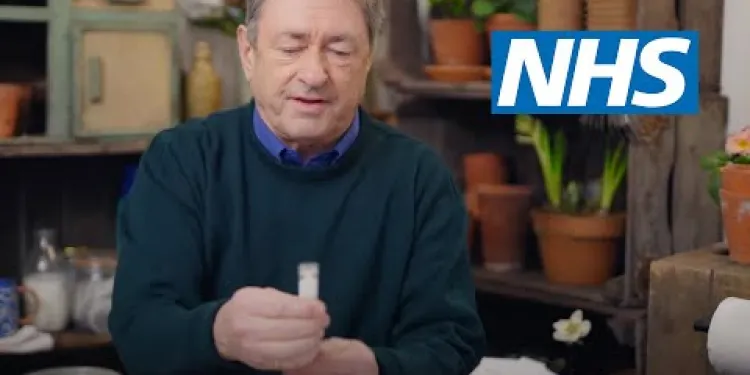
Bowel cancer screening: Alan Titchmarsh and Tommy Walsh | NHS
Relevance: 63%
-

What factors are contributing to the increase in bowel cancer cases?
Relevance: 63%
-

Can exercise help slow down the progression of bowel cancer?
Relevance: 62%
-

Can exercise help slow down the progression of bowel cancer?
Relevance: 62%
-

How does exercise impact bowel cancer progression?
Relevance: 62%
-

Can lifestyle changes help reduce bowel cancer risk?
Relevance: 62%
-

How to do the FIT bowel cancer screening test | Cancer Research UK
Relevance: 62%
-

What lifestyle changes can help lower the risk of bowel cancer?
Relevance: 62%
-

How does family history affect the risk of bowel cancer?
Relevance: 62%
-

How does increased screening impact bowel cancer statistics?
Relevance: 62%
-

What types of exercise are beneficial for bowel cancer patients?
Relevance: 61%
-

What role does diet play in the risk of developing bowel cancer?
Relevance: 60%
-

What role does alcohol consumption play in bowel cancer risk?
Relevance: 59%
-
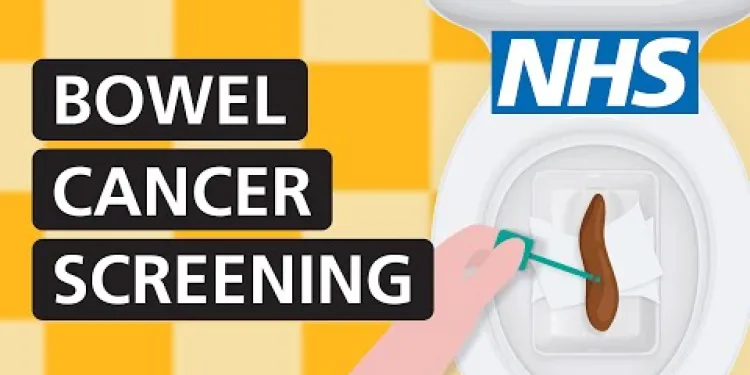
How to use the bowel cancer screening FIT kit | NHS
Relevance: 50%
-

Are there support groups for those affected by testicular cancer?
Relevance: 47%
-

What is the difference between colon cancer and rectal cancer?
Relevance: 46%
-
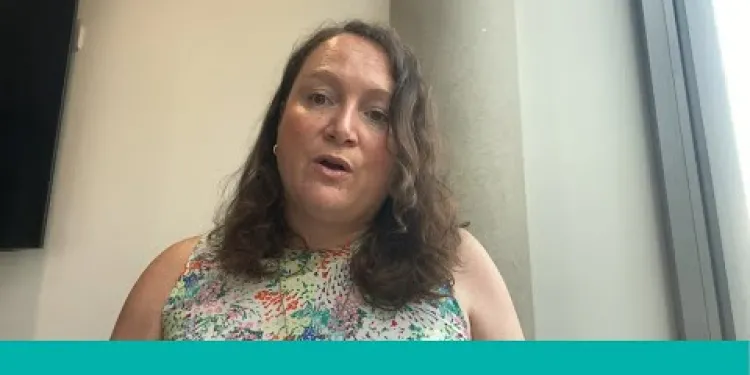
Bowel Cancer
Relevance: 45%
-

What are the recommendations for colorectal cancer screening?
Relevance: 45%
-

How often should someone with bowel cancer exercise?
Relevance: 44%
-

Are there online support services for prostate cancer patients on the NHS?
Relevance: 44%
Introduction to Bowel Cancer Support
Bowel cancer, also known as colorectal cancer, is a common and serious illness in the UK. Receiving a diagnosis can be daunting, but a wide range of support is available to help individuals navigate treatment and recovery. From medical treatment and psychological support to practical assistance and community resources, individuals with bowel cancer are not alone on this journey.
Medical Support
Once diagnosed with bowel cancer, patients will be assigned a multidisciplinary team (MDT) of healthcare professionals, including oncologists, surgeons, radiologists, and specialist nurses. The MDT collaborates to create a personalized treatment plan, ensuring patients receive the most effective combination of surgery, chemotherapy, radiotherapy, or other treatments. Specialist nurses, such as colorectal nurse specialists, provide crucial support by answering questions, coordinating care, and offering guidance throughout the treatment process.
Psychological Support
Coping with a cancer diagnosis can be emotionally challenging. Psychological and emotional support is available through various channels. Many hospitals provide access to clinical psychologists or counselors who specialize in supporting cancer patients. In addition, charities such as Macmillan Cancer Support and Bowel Cancer UK offer helplines and online support services, where individuals can speak to trained professionals about their concerns or anxieties.
Practical Assistance
Navigating the practical aspects of life with bowel cancer is made more manageable with the right support. Macmillan Cancer Support offers guidance on financial concerns, including accessing benefits and applying for grants. Patients can reach out to social services for help with transportation to medical appointments or arranging necessary adaptations in the home. Some charities also provide volunteers who can assist with daily tasks like shopping or cleaning.
Community and Peer Support
Connecting with others who have experienced bowel cancer can be incredibly beneficial. Peer support groups provide a safe space for individuals to share experiences and advice. Bowel Cancer UK and other organizations host local and online support groups where patients and families can connect. Online forums and social media groups also facilitate the sharing of stories and encouragement within the bowel cancer community, providing comfort and understanding to those affected.
Resources for Families and Caregivers
Supporting a loved one with bowel cancer can also be challenging for families and caregivers. Numerous resources offer guidance and support to help them cope. Informational sessions, caregiver support groups, and dedicated helplines are available through cancer charities. Education on bowel cancer, coping strategies, and communication tips enable loved ones to provide effective support while also taking care of their own emotional well-being.
Conclusion
A diagnosis of bowel cancer is undoubtedly challenging, but the support available in the UK is comprehensive. From medical care to emotional and practical assistance, individuals with bowel cancer and their families have access to a range of resources to help them through this difficult time. Leveraging this support network can improve outcomes and provide comfort and hope on the journey towards recovery.
Introduction to Bowel Cancer Support
Bowel cancer, also called colorectal cancer, is a serious illness in the UK. Finding out you have this can be scary, but there is lots of help available. You can get medical help, talk to someone about your feelings, and get practical support. There are people and groups to help you through your treatment and recovery. You are not alone.
Medical Support
If you have bowel cancer, a team of doctors and nurses will look after you. These include cancer doctors, surgeons, and specialist nurses. They will make a treatment plan just for you. This plan might include surgery, medicine, or other treatments. The specialist nurses are there to answer your questions and help you understand what will happen.
Psychological Support
Finding out you have cancer can be very hard. There is help for your feelings and worries. Hospitals have experts who can talk to you about how you feel. Charities like Macmillan Cancer Support can help too. They have phone lines and online chats where you can talk to someone about your worries.
Practical Assistance
Having bowel cancer can make everyday life tricky, but help is available. Macmillan Cancer Support can advise you on money matters like benefits and grants. Social services can help with getting to the hospital or making changes to your home. Some charities have volunteers who can help with shopping or cleaning.
Community and Peer Support
Talking to others with bowel cancer can be very helpful. You can join support groups where you can share experiences and tips. Bowel Cancer UK offers local and online groups. You can also join online forums and social media groups to meet others and find support.
Resources for Families and Caregivers
Looking after someone with bowel cancer can be hard for families. There are resources to help them too. They can join support groups or call helplines for advice. Learning more about bowel cancer and how to help can make it easier for them to support their loved one and also take care of themselves.
Conclusion
Having bowel cancer is tough, but there is a lot of support in the UK. From doctors and nurses to people to talk to and help with everyday life, there are many resources available. Using this support can make things a bit easier and bring hope during a difficult time.
Frequently Asked Questions
What types of financial support are available for individuals diagnosed with bowel cancer?
Individuals can access financial support through government benefits, grants from cancer charities, and sometimes financial counseling services provided by hospitals or cancer organizations.
Are there support groups specifically for people with bowel cancer?
Yes, there are support groups specifically for bowel cancer patients, both in person and online, where individuals can share experiences and advice.
Can caregivers of bowel cancer patients receive support?
Absolutely. Many organizations offer resources and support networks for caregivers to help them manage the emotional and physical demands of caregiving.
What psychological support is available to bowel cancer patients?
Patients can access counseling, therapy sessions, or support groups that help address the emotional impact of a cancer diagnosis.
Are there nutrition services available for bowel cancer patients?
Yes, many hospitals and cancer centers offer nutrition counseling to help patients manage their diet and maintain their weight during treatment.
Can patients get help with transportation to medical appointments?
Some cancer charities and local community services offer transportation assistance to help patients get to and from medical appointments.
Is there palliative care support for bowel cancer patients?
Palliative care is available to help manage symptoms and improve quality of life for bowel cancer patients, often through specialized healthcare teams.
Do bowel cancer patients have access to rehabilitation services?
Yes, patients can access physical therapy, occupational therapy, and other rehabilitation services to aid recovery and maintain independence.
Are there educational resources to help patients understand bowel cancer?
Various organizations provide educational brochures, websites, and workshops to help patients and their families understand the condition and treatments.
Can bowel cancer patients access home-based care services?
Yes, home healthcare services can provide medical care at home, including nursing support and palliative care, depending on the patient's needs.
What types of legal advice are available for bowel cancer patients?
Patients can often access free or low-cost legal advice regarding employment rights, insurance claims, and preparing health directives.
Are there clinical trials available for bowel cancer patients?
Yes, bowel cancer patients may be eligible for clinical trials which can provide access to new treatments and therapies.
Can bowel cancer patients receive second opinions on their diagnosis?
Patients are encouraged to seek second opinions to ensure they are comfortable and informed about their diagnosis and treatment options.
What support is there for families of bowel cancer patients?
Support for families includes counseling, support groups, and educational resources to help them cope and support their loved one.
Is genetic counseling available for bowel cancer patients?
Yes, genetic counseling can help assess the risk of hereditary bowel cancer and guide family members on their own health monitoring.
Can patients receive information about lifestyle changes to manage bowel cancer?
Yes, healthcare providers often offer guidance on lifestyle changes, such as diet and physical activity, to help manage symptoms and improve outcomes.
Is spiritual support available for bowel cancer patients?
Many hospitals offer chaplaincy services and can connect patients with spiritual care that aligns with their beliefs.
Do insurance plans typically cover bowel cancer treatments?
Most insurance plans cover bowel cancer treatments, but patients should check their specific policy and seek assistance for any insurance queries.
Is there support for managing treatment side effects?
Healthcare teams provide strategies and medications to manage side effects of treatments such as chemotherapy or radiation.
Are there resources for understanding clinical jargon related to bowel cancer?
Yes, patient advocacy groups and healthcare providers can offer plain-language resources and glossaries to help patients understand medical terminology.
What money help can people with bowel cancer get?
If you have bowel cancer, there are ways to get money help.
Here are some things that might help:
- Talk to a social worker about getting government benefits.
- Check if your work offers paid time off or sick pay.
- Look for charities that help people with cancer.
- Ask friends or family if they can help you with costs.
There are also tools like apps or websites that can help you track your spending and budget.
People can get money help from the government, or from cancer charities. Sometimes hospitals or cancer groups can also give money advice.
Are there groups to help people with bowel cancer?
Yes, there are groups where people with bowel cancer can meet and talk.
These groups help people share feelings and learn from each other.
You can ask your doctor or nurse to help you find a group.
Online groups can also be useful. You talk to people on the computer.
Yes, there are groups that help people with bowel cancer. You can meet with them in person or talk online. In these groups, people share their stories and give advice.
Can people who take care of bowel cancer patients get help?
Yes, definitely! There are groups and places that help people who look after others. They can help with feelings and the hard work of taking care of someone.
What help is there for bowel cancer patients to feel better in their mind?
People can talk to a counselor, go to therapy sessions, or join support groups. These things can help with feelings when someone finds out they have cancer.
Can people with bowel cancer get help with food and nutrition?
People with bowel cancer can get help with their food and nutrition. Here are some tips and tools:
- See a dietitian: A dietitian is a food and health expert. They can help you eat the right foods.
- Ask your doctor: Your doctor can give advice on what to eat.
- Look for support groups: They can share more tips and ideas on eating well.
- Use apps: There are apps that can help you keep track of your food.
Yes, many hospitals and cancer centers have people who help you with eating. They can show you how to eat well and stay a healthy weight while you are getting better.
Can patients get help to go to the doctor?
Yes, people can get help to go to the doctor. Some places have services to drive you to your doctor or hospital.
If you need help to get there, you can:
- Ask your doctor if they know any services that give rides.
- Call your health insurance. They might pay for your ride.
- Look for local community groups that help with rides.
Using a calendar or reminder on your phone can help you remember your appointment.
Some groups that help people with cancer and local community services can help arrange rides for patients to get to and from the doctor.
Can people with bowel cancer get palliative care help?
"Palliative care" helps people feel better when they are sick. It focuses on comfort rather than cure.
Yes, people with bowel cancer can get palliative care support.
Palliative care teams can help with:
- Feeling less pain
- Breathing easier
- Feeling happier and less worried
They can also help families care for their loved ones.
Tools like picture boards or voice apps can help people talk better when words are hard.
Palliative care is special help for people with bowel cancer. It helps with pain and feeling better. Special doctors and nurses give this care.
Can people with bowel cancer get help to feel better?
People with bowel cancer might need special help to feel better, called "rehabilitation services." These services can help them get strong and healthy again.
If you or someone you know has bowel cancer, it's important to ask the doctor about these services. They can tell you what help is available.
You can also use pictures or apps to understand more about getting better. Asking friends or family to help you understand can be useful too.
Yes, patients can get help from physical therapy, occupational therapy, and other programs. These can help you get better and stay independent.
Can I get help to learn about bowel cancer?
There are books and videos that can help you learn about bowel cancer. They use simple words and pictures. You can ask a doctor or nurse for advice on which ones to use.
Here are some ways to make learning easier:
- Watch videos instead of reading.
- Ask someone to read with you and talk about it together.
- Use apps that read the text out loud.
- Write down any questions you have and ask a doctor or nurse.
There are groups that can help you learn about your illness and the treatments for it.
They make easy-to-read booklets, websites, and have meetings where they explain things simply.
These can help you and your family understand better.
Can people with bowel cancer get care at home?
Yes, people can get medical help at home. This can include care from nurses and special care to make someone feel better. What help they get depends on what the person needs.
What legal help can people with bowel cancer get?
If you have bowel cancer, you can get help with legal questions.
You might need advice about work, money, or medical care.
Here are some people who can help:
- Lawyers: They know a lot about the law and can give good advice.
- Advice lines: You can call for free help over the phone.
- Support groups: Other people with bowel cancer can share what they know.
There are also websites with information to help you understand your rights.
It might be good to ask a friend or family member to help you find the right advice.
People can often get free or cheap help with the law. This help is about jobs, insurance, and planning for health care.
Can people with bowel cancer join research studies?
Yes, people with bowel cancer might be able to join special research studies. These studies can help them get new medicines and treatments.
Can people with bowel cancer ask another doctor what they think?
It is good for patients to ask other doctors what they think. This can help patients feel sure about what is wrong and how to get better.
Asking more than one doctor can help you understand better.
How can families get help when someone has bowel cancer?
Families can get help from talking to someone about their feelings, joining groups where they can share stories and learn from others, and using books or websites to learn more. This helps them feel better and support the person they care about.
Can people with bowel cancer get genetic help?
Yes, talking to a genetic counselor can help. They can find out if bowel cancer runs in your family. They can also help your family know what health checks they might need.
Can people with bowel cancer get help to change their lifestyle?
If you have bowel cancer, you can get help to live healthier. This can include advice on food, exercise, and other things to feel better.
Ask your doctor or nurse for simple tips. You can also:
- Join a support group to talk to others.
- Use apps to track your meals and activities.
- Watch videos for easy exercises.
Remember, making small changes can help a lot!
Yes, doctors and nurses can help you with healthy living. They give advice on eating right and moving your body. This helps you feel better and stay healthy.
Can bowel cancer patients get spiritual help?
People with bowel cancer might want spiritual help. This means they want support for their heart and mind.
Here are some ways they can get help:
- Talk to a chaplain or a spiritual advisor at the hospital. They are good listeners.
- Join a support group. Talking with others who have cancer can help.
- Meditate or pray. This can make you feel calm.
- Use calming music or nature sounds to feel better.
It's okay to ask for help when you need it. You are not alone.
Many hospitals have chaplains. Chaplains help people with their beliefs. They can help you feel better by talking about things that matter to you.
Do insurance plans usually pay for bowel cancer treatments?
Insurance is a way to help pay for medical care.
Bowel cancer is a type of illness.
Insurance plans might help pay if you get bowel cancer.
It's smart to check your insurance plan. You can call the company and ask:
- Does my plan cover bowel cancer treatments?
- What doctors can I visit?
- How much do I need to pay?
You can ask someone to help you read and understand your plan. This can be a family member or a friend.
Most insurance plans help pay for bowel cancer treatments. But it is important for patients to look at their own insurance plan to be sure. If you have questions about your insurance, ask someone for help.
Can you get help for how treatment makes you feel?
If medicine makes you feel bad, you can get help. Ask your doctor or nurse. They know how to help.
If reading is hard, you can:
- Look at pictures about the treatment.
- Use reading apps that speak.
- Ask someone to read with you.
Doctors and nurses help when medicines like chemotherapy or radiation make you feel bad. They give you other medicines and ideas to feel better.
Can I find help to understand words about bowel cancer?
There are places that can help you learn about bowel cancer words. You can use books, websites, or talk to doctors and nurses.
You can also use special tools like:
- Simple word dictionaries
- Apps that explain hard words
- Videos that use simple words to teach
Yes, there are groups and doctors who can help. They can give you simple words and lists to make it easier to understand medical words.
Useful Links
This website offers general information and is not a substitute for professional advice.
Always seek guidance from qualified professionals.
If you have any medical concerns or need urgent help, contact a healthcare professional or emergency services immediately.
Some of this content was generated with AI assistance. We’ve done our best to keep it accurate, helpful, and human-friendly.
- Ergsy carfully checks the information in the videos we provide here.
- Videos shown by Youtube after a video has completed, have NOT been reviewed by ERGSY.
- To view, click the arrow in centre of video.
- Most of the videos you find here will have subtitles and/or closed captions available.
- You may need to turn these on, and choose your preferred language.
- Go to the video you'd like to watch.
- If closed captions (CC) are available, settings will be visible on the bottom right of the video player.
- To turn on Captions, click settings .
- To turn off Captions, click settings again.
More Items From Ergsy search
-

What support is available for individuals diagnosed with bowel cancer?
Relevance: 100%
-

What is Bowel Cancer?
Relevance: 76%
-

Can bowel cancer be prevented?
Relevance: 71%
-

How common is bowel cancer?
Relevance: 70%
-

Why is there a surge in bowel cancer?
Relevance: 69%
-

How is bowel cancer diagnosed?
Relevance: 68%
-

Bowel Cancer
Relevance: 67%
-

Bowel cancer - Symptoms and signs to look out for
Relevance: 67%
-

What are the risk factors for bowel cancer?
Relevance: 67%
-

What is the survival rate for bowel cancer?
Relevance: 67%
-

How does obesity affect bowel cancer rates?
Relevance: 67%
-

Is diet linked to the rise in bowel cancer?
Relevance: 66%
-

Are there specific benefits of exercise for bowel cancer survivors?
Relevance: 65%
-

Are younger people being diagnosed with bowel cancer more frequently?
Relevance: 65%
-

Taking a Genetic Family History - The Conversation (Bowel Cancer)
Relevance: 65%
-

Can bowel cancer spread to other parts of the body?
Relevance: 64%
-

How is the stage of bowel cancer determined?
Relevance: 64%
-

Learn about bowel cancer (British Sign Language version)
Relevance: 63%
-

What treatment options are available for bowel cancer?
Relevance: 63%
-

What are the side effects of bowel cancer treatment?
Relevance: 63%
-

Bowel cancer screening: Alan Titchmarsh and Tommy Walsh | NHS
Relevance: 63%
-

What factors are contributing to the increase in bowel cancer cases?
Relevance: 63%
-

Can exercise help slow down the progression of bowel cancer?
Relevance: 62%
-

Can exercise help slow down the progression of bowel cancer?
Relevance: 62%
-

How does exercise impact bowel cancer progression?
Relevance: 62%
-

Can lifestyle changes help reduce bowel cancer risk?
Relevance: 62%
-

How to do the FIT bowel cancer screening test | Cancer Research UK
Relevance: 62%
-

What lifestyle changes can help lower the risk of bowel cancer?
Relevance: 62%
-

How does family history affect the risk of bowel cancer?
Relevance: 62%
-

How does increased screening impact bowel cancer statistics?
Relevance: 62%
-

What types of exercise are beneficial for bowel cancer patients?
Relevance: 61%
-

What role does diet play in the risk of developing bowel cancer?
Relevance: 60%
-

What role does alcohol consumption play in bowel cancer risk?
Relevance: 59%
-

How to use the bowel cancer screening FIT kit | NHS
Relevance: 50%
-

Are there support groups for those affected by testicular cancer?
Relevance: 47%
-

What is the difference between colon cancer and rectal cancer?
Relevance: 46%
-

Bowel Cancer
Relevance: 45%
-

What are the recommendations for colorectal cancer screening?
Relevance: 45%
-

How often should someone with bowel cancer exercise?
Relevance: 44%
-

Are there online support services for prostate cancer patients on the NHS?
Relevance: 44%


